Oxford’s medical history has long been shrouded in complex ethical debates. This "Uncomfortable" walking tour invites participants to uncover the city’s past, from deadly epidemics to controversial anatomy dissections. With a knowledgeable guide, the tour explores how public health policies have often collided with individual rights. As the group navigates Oxford’s winding streets, they’ll confront the societal impacts of medical advancements and grapple with the difficult questions that linger over the city’s rich, yet troubled, healthcare legacy. What unsettling insights might emerge from this thought-provoking exploration?
This experience made our list of the 5 Best Historical Tours In Oxford.
Good To Know
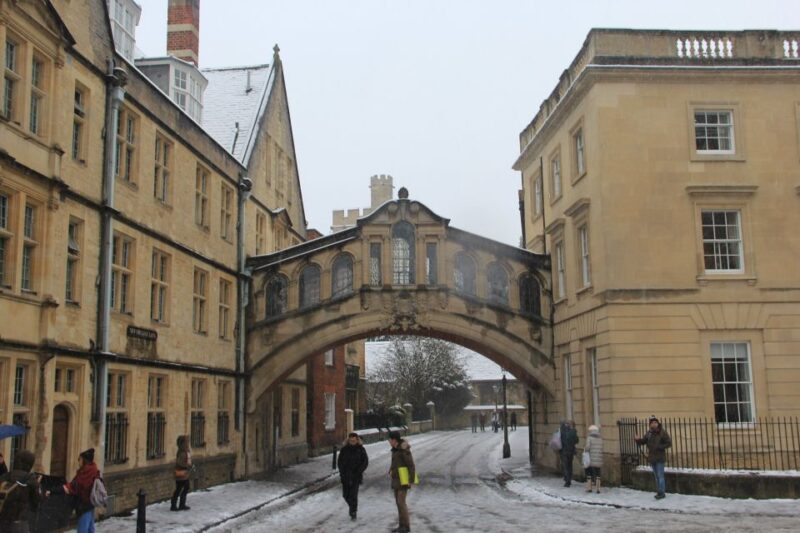
- The tour explores Oxford’s complex medical history, including epidemics, anatomy dissections, public health policies, and controversial medical research practices.
- Guides provide insights into the tensions between public health safety and individual rights that have shaped Oxford’s medical landscape over time.
- Discussions around ethical dilemmas in anatomy studies and medical experimentation on vulnerable populations encourage critical engagement with the city’s medical past.
- The tour examines how historical outbreaks and medical developments have influenced public health responses and shaped the evolution of Oxford’s urban environment.
- Flexible booking options and wheelchair accessibility make the tour accessible to a diverse audience, allowing them to navigate Oxford’s uncomfortable medical history.
Tour Overview and Details
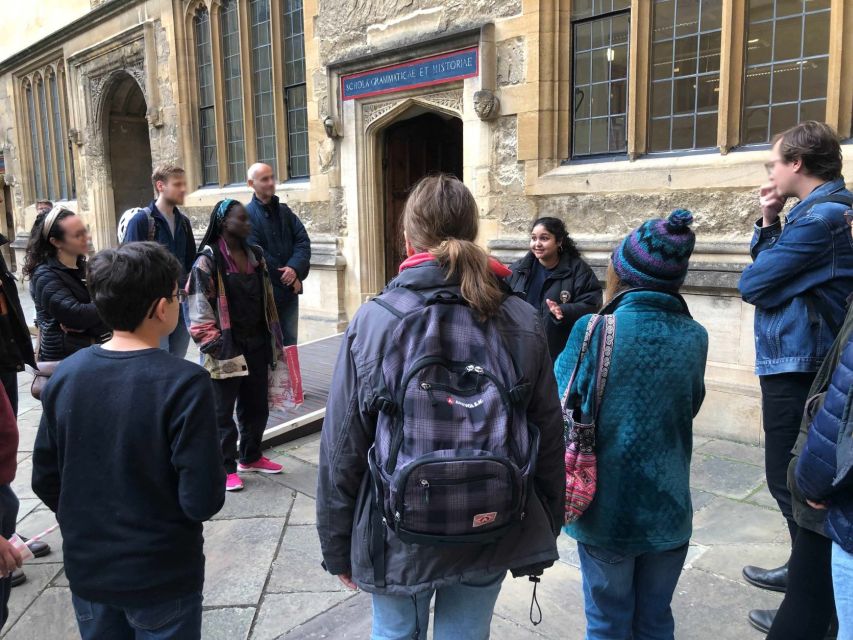
The Oxford: History of Medicine walking tour, titled "Oxford: History of Medicine – an Uncomfortable™ Walking Tour," offers participants a 1.5-hour exploration through approximately 2 kilometers of the city.
Priced from $26.75 per person, the tour is wheelchair accessible, though it navigates mild uneven cobblestones and busy streets on weekends.
Participants will meet the guide wearing a bright blue vest and Uncomfortable Oxford branded tote bag under the Bridge of Sighs (Hertford Bridge).
The tour highlights the history of epidemic disease, anatomy dissections, tensions between public health policies and individual rights, and the complex history of medical research in Oxford.
You can also read our reviews of more walking tours in Oxford
Exploring Epidemic History
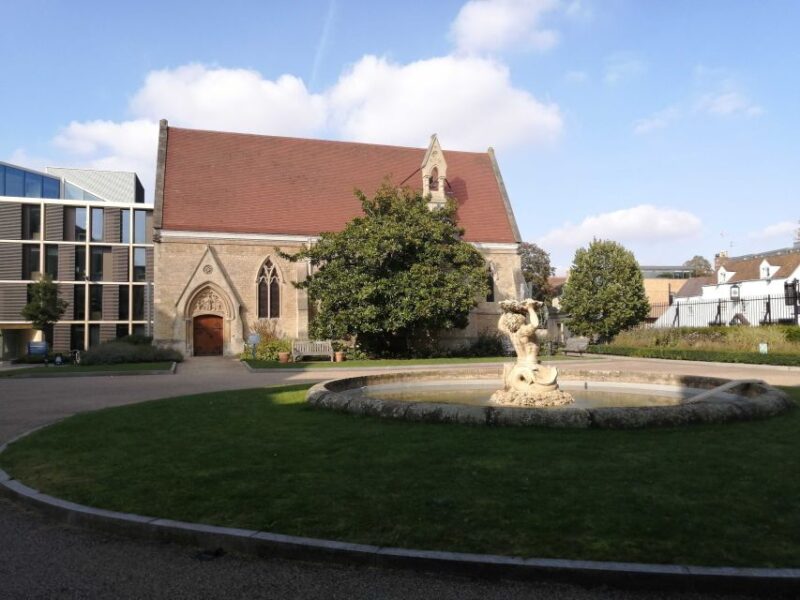
Oxford’s history is marked by an unsettling legacy of epidemic disease that ravaged the city. Outbreaks of plague, cholera, and influenza swept through the bustling streets, claiming countless lives.
Tour you will explore:
-
The devastating Black Death pandemic that struck Oxford in the 14th century, decimating the population and leaving a profound impact on the city’s development.
-
The cholera epidemics of the 19th century, which exposed the stark inequalities in Oxford’s sanitation and public health policies.
-
The impact of the 1918 Spanish Flu outbreak, which disrupted university life and challenged medical authorities to confront the realities of a global pandemic.
-
The evolving understanding of disease transmission and the role of Oxford’s medical researchers in pioneering new approaches to public health.
Anatomy Dissections in Oxford
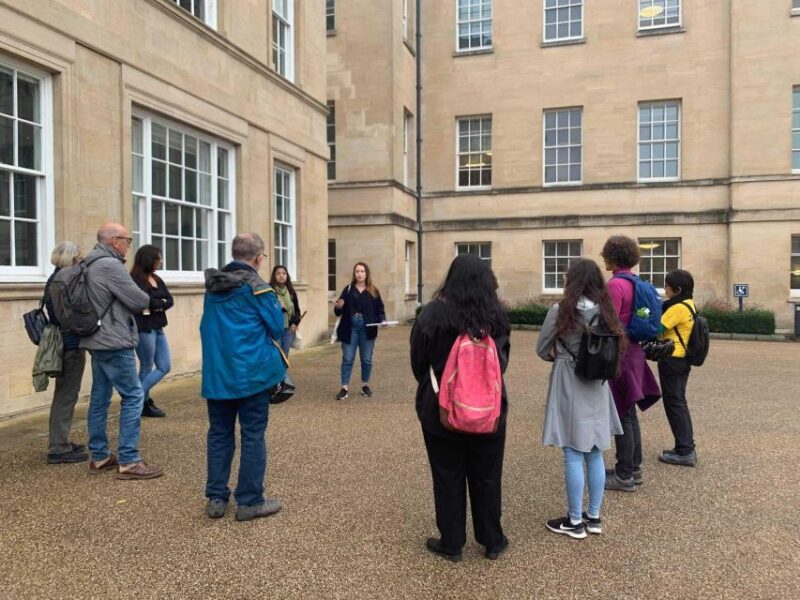
Anatomy dissections have long held a prominent place in Oxford’s medical history, serving as both a source of scientific advancement and ethical controversy. The university’s anatomy studies date back to the 16th century, with notable figures like William Harvey conducting pioneering research. However, the practice was not without its critics, who raised concerns over the use of human remains for educational purposes. The following table illustrates some key events and debates surrounding anatomy dissections in Oxford:
| Event/Debate | Impact |
|---|---|
| 16th century anatomical studies | Advanced understanding of human physiology |
| Debates over use of cadavers | Raised ethical questions about bodily autonomy |
| 19th century reforms | Improved regulation and consent processes |
| Ongoing ethical considerations | Continued dialogue on the boundaries of medical research |
Balancing Public Health and Rights
Throughout Oxford’s history, public health initiatives have often clashed with individual rights and civil liberties.
The tour examines several instances where this tension arose, including:
-
Compulsory vaccination programs in the 19th century that faced resistance from those opposed to state interference in personal medical decisions.
-
Restrictions on movement and assembly during infectious disease outbreaks, which were seen by some as unjustified curtailments of freedom.
-
The ethical dilemmas surrounding medical experimentation, where the pursuit of scientific knowledge sometimes came at the expense of individual consent.
-
Debates over access to healthcare and the role of the state in providing or regulating medical services.
These complex issues highlight the delicate balance between protecting public wellbeing and safeguarding individual liberties.
More Great Tours NearbyThe Complex History of Research
The history of medical research in Oxford has been complex, marked by both groundbreaking discoveries and ethical controversies.
The University has long been a hub of innovation, with researchers pushing the boundaries of medical knowledge. However, this progress hasn’t come without its challenges.
Over the centuries, Oxford has grappled with the ethics of anatomical dissection, the use of animal testing, and the exploitation of vulnerable populations in clinical trials.
Visitors on the tour will explore these difficult histories, examining how the pursuit of scientific advancement has at times come into conflict with principles of human rights and social justice.
Understanding this complex legacy is crucial for navigating the future of medical research.
You can also read our reviews of more historical tours in Oxford
- Oxford: Private City Tour & University Historical Highlights
- Oxford’s Architectural Gems: A Historic Walk
- Reformation Oxford Christian History Tour Private Groups
- Oxford: Architectural & Historical Highlights Tour
- Cirencester’s Tall Tales and Hidden History: A Self-Guided Audio Tour
- 8-Hour Private Historical Tour of England in a Classic Car
Live Tour Guide Insights
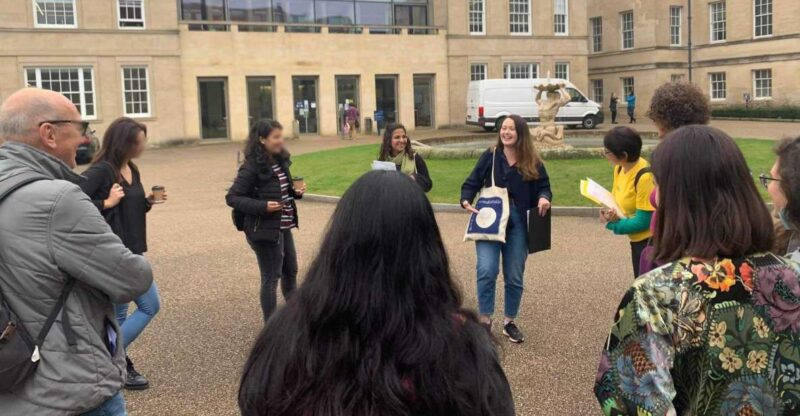
The Uncomfortable Oxford™ tour guide brings a wealth of expertise and insight to the experience, enriching visitors’ understanding of the complex history of medicine in the city.
With a deep knowledge of Oxford’s past, the guide skillfully navigates the tour, highlighting:
-
The tensions between public health policies and individual rights, and how they played out in the city’s history.
-
The role of anatomy dissections at the University, and the ethical debates surrounding these practices.
-
The impact of epidemic diseases, such as the Black Death, on the local population and the city’s response.
-
The nuances and controversies in the history of medical research conducted in Oxford.
Flexible Travel Arrangements
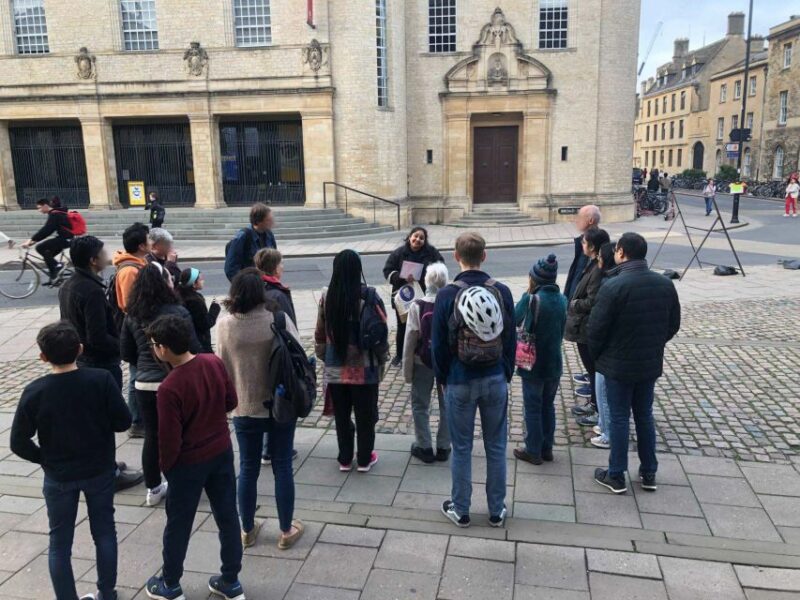
One of the key features of the Oxford: History of Medicine Walking Tour is its flexible travel arrangements. Participants can reserve their spot now and pay later, allowing for more flexibility with their travel plans.
Plus, the tour offers free cancellation up to 24 hours in advance, providing customers with the option to receive a full refund if their plans change. This flexibility caters to the needs of modern travelers, ensuring they can easily fit the tour into their itinerary without the risk of losing their money.
The reserve now and pay later option is particularly useful for those with uncertain schedules, making the tour more accessible and appealing to a wider audience.
Critical Engagement and Discussion
Underpinning the Oxford: History of Medicine Walking Tour is its intent to promote critical engagement and discussion among participants.
The tour challenges travelers to analyze the diverse impacts of historical events, including the influence of disease, imperialism, conflict, and inequality on modern medicine.
This approach encourages participants to:
- Examine the complex tensions between public health policies and individual rights.
- Discuss the ethics behind controversial medical practices, such as anatomy dissections.
- Understand how the legacies of the past shape present-day medical research and practice.
- Reflect on the uncomfortable realities that have shaped the history of health and medicine in Oxford.
Frequently Asked Questions
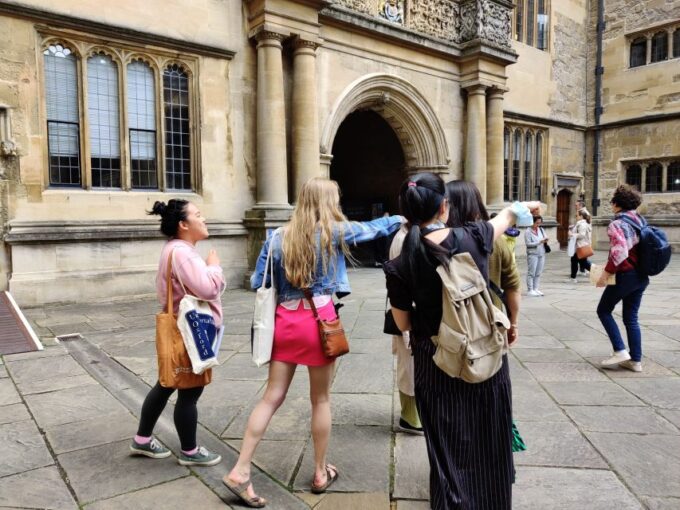
Is There a Minimum Group Size Required for the Tour?
The tour does not have a minimum group size requirement. Individuals can book the tour and join the group as solo travelers. The tour is open to all interested participants, regardless of the group size.
Can I Buy Tickets on the Day of the Tour?
Yes, you can purchase tickets on the day of the tour. The tour operator offers a "reserve now & pay later" option, allowing for flexible travel plans. Walk-up tickets are available subject to availability.
Are There Any Age Restrictions or Requirements for the Tour?
There are no age restrictions or requirements for this tour. The tour is suitable for all ages, though a moderate level of mobility is recommended due to the walking and uneven cobblestones along the route.
Are There Any Additional Fees or Costs Not Included in the Price?
Based on the information provided, the tour price of $26.75 per person appears to cover all the main components of the experience. There don’t seem to be any additional fees or costs mentioned that aren’t included in the listed price.
Can I Take Photos or Videos During the Tour?
Yes, participants are generally allowed to take photos and videos during the tour, though they should be mindful of not disrupting the guide’s presentation or other participants’ experience. Checking with the guide for any specific guidelines is recommended.
Sum Up
The "Oxford: History of Medicine – an Uncomfortable™ Walking Tour" offers a thought-provoking exploration of the city’s complex medical legacy. Participants uncover the ethical dilemmas and societal impacts of historical practices, from epidemic diseases to anatomy dissections. With a knowledgeable guide, the wheelchair-accessible tour encourages critical engagement, blending history with modern reflections on health and individual rights.
You can check availability for your dates here:More Walking Tours in Oxford
More Tours in Oxford
More Tour Reviews in Oxford
Not for you? Here's more nearby things to do in Oxford we have reviewed
- Oxford: Official CS Lewis and JRR Tolkien Walking Tour
- Cotswolds Christmas Baking Workshop in Burford
- Oxford: 2 hour Historical, literary and architectural highlights
- Shared | Oxford University Punting Tour
- Multi Day Cotswold Village Trail
- Sourdough Bread Baking Class
- Natural History Museum Tour – by Uncomfortable Oxford
- Oxford: Town and Gown Tour with Divinity School Entry Ticket
- 3-Day Private Guided Tour in England from London
- Oxford University Tour
- Clarkson Farm Inspired Road Trip
- The Cotswold Tour
